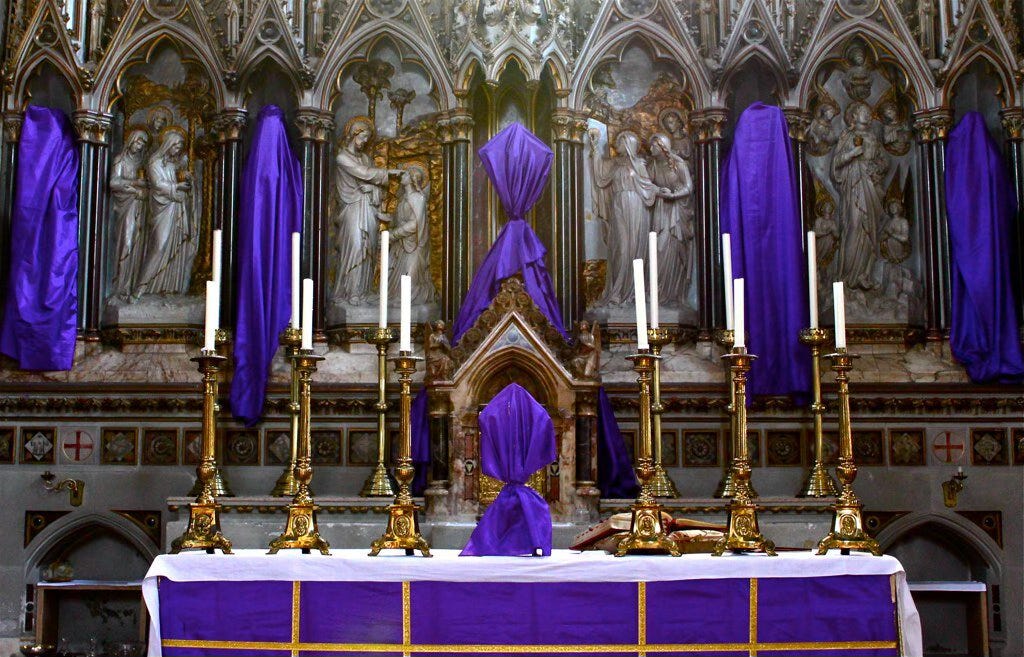Tomorrow, Passiontide begins. Passiontide runs from Judica Sunday through the Great Vigil of Easter. A few liturgical alterations are made during Passiontide, and other additional rubrics are observed. As many of these customs have fallen out of practice in the Church today, below is a brief list of Passiontide rubrics that would serve the Church well in this time of intensified devotion and increased penitence.
Beginning tomorrow, Judica Sunday, all crosses and images are veiled. This practice is symbolic of the final verse of the historic Gospel text for Judica Sunday: “So they picked up stones to throw at him, but Jesus hid himself and went out of the temple” (John 8:59). All images remained veiled until the Great Vigil of Easter.
A few liturgical alterations occur throughout Passiontide:
Beginning Judica Sunday, the Gloria Patri is omitted. It is no longer said following the Psalms, Introit, or Responsories. The Nunc Dimittis also disappears altogether.
On Maundy Thursday, the bell is rung to begin the Mass, after which the bell is not rung until the Vigil of Easter. The Agnus Dei is sung without the final phrase, “grant us Thy peace.” The third refrain of the Agnus Dei may be sung as the first two, with “have mercy upon us.”
On Good Friday, the Confession, Introit, and Kyrie are omitted, and the readings and Passion are read without title (“A reading from…”) or response (“This is the Word of the Lord…”).
Over the course of the Church’s Lenten journey, the liturgy undergoes a gradual simplification. One may notice that liturgical elements have gradually been omitted during the season of Lent according to the time at which they were introduced to the Mass. The Gloria, one of the earliest elements of the Mass, was the first to be discarded, while the Nunc Dimittis, a later addition to the Mass, is one of the last to be omitted.
Passiontide is a time of increased penitence. The Church has gradually prepared for the culmination of this holy season in Holy Week. Additional restraint is placed on the Church’s liturgy to prepare our hearts and minds for the solemn observance of our Lord’s Passion—and to prepare us for the imminent and immeasurable joy that awaits at the feast of the Resurrection. All of the Lententide liturgical omissions and restraints make for a more joyous celebration of the Resurrection of our Lord on Easter Sunday.




